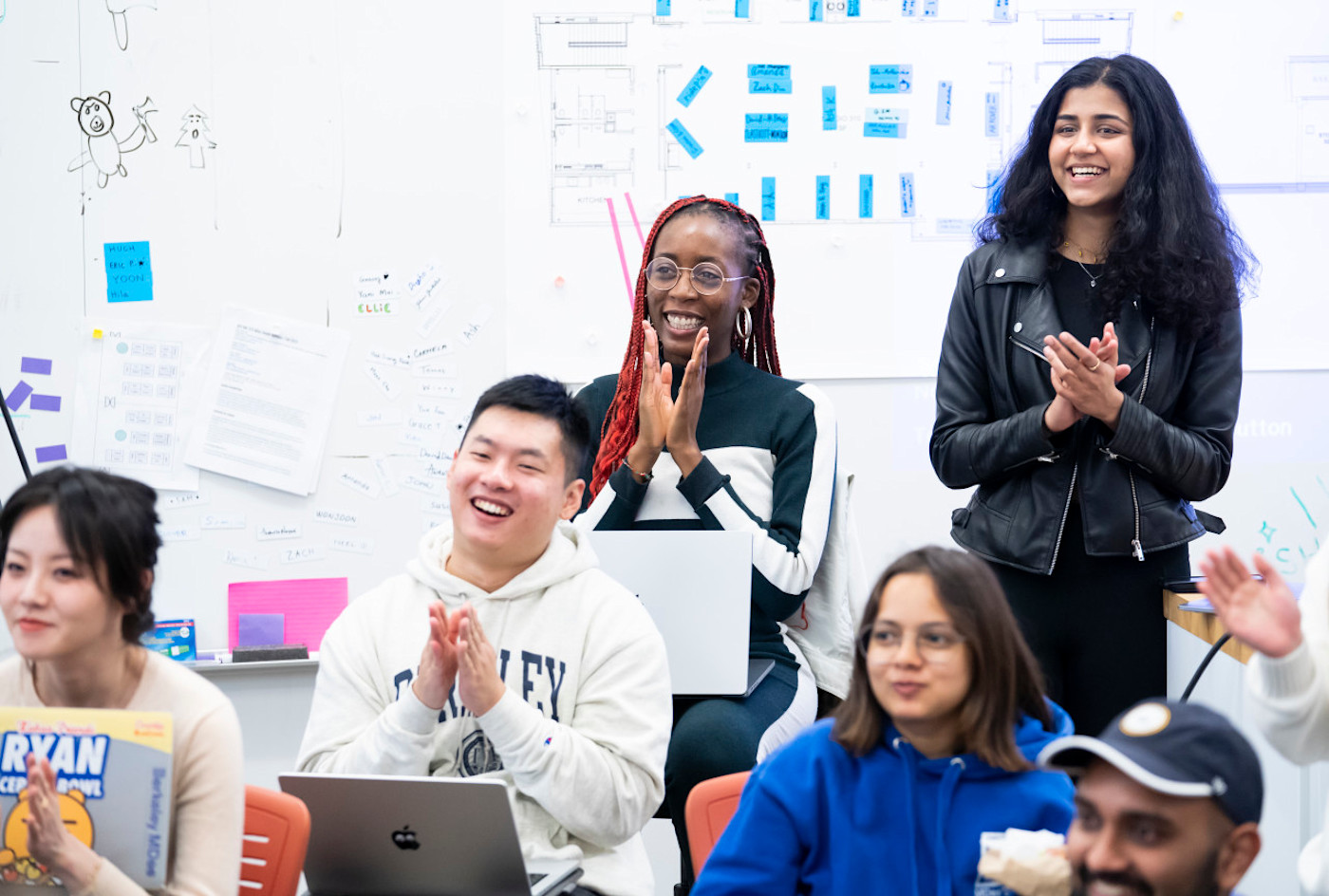Please disable your adblocker to join Shorelight’s team of partners and agents.
FAQs about the Applied AI in Engineering Summer Institute at UC Berkeley
Who should apply?
This two-week program is ideal for undergraduate students with an interest in the future of applied artificial intelligence and innovation in engineering. Throughout the program, students will participate in lectures, seminars, and group projects while exploring cutting-edge subjects.
Why should I attend?
Add applied artificial intelligence to your resume (AI roles are expected to grow 38% from 2022 to 2030 — Precedence Research, 2023)
Experience university life as a resident on the UC Berkeley campus
Explore California with planned outings to local Bay Area attractions (e.g., the Golden Gate Bridge and Fisherman’s Wharf)
Participate in career development workshops and visit leading tech companies (e.g., Google and Salesforce)
Complete a capstone project and gain valuable skills and experience that support your educational and career goals
Build your resume and portfolio with a Certificate of Achievement
What topics will be covered during the session?
Clean and Renewable Energy and Infrastructural Systems
Biomedical and Biomechanical Engineering
Engineering Data Analysis
Advanced Manufacturing
Systems Engineering and Supply Chain Management
Robotics and Autonomous Systems
IoT and Smart Infrastructure
Virtual Assistants and Embedded Support Systems
Computer Vision and Image Processing
Ethics and Societal Impacts of AI in Engineering
Subject to change.
What seminars will I be taking?
Examples of seminars that students will participate in during their two-week program include:
Walk, Run, Leap: Adventures in Legged Locomotion
This seminar will begin with a brief history of legged robots and present the need for legged robots as well as their associated challenges. This will be followed by an overview of methods for developing controllers to enable legged locomotion. We will conclude with several modern AI algorithms, particularly reinforcement learning, for enhancing the abilities of legged robots to perform dynamic movements such as walking, running, and leaping.
Aerial Robots and the Future of Aerial Transport
The seminar will commence with a comprehensive examination of the historical evolution of aerial payload transportation, shedding light on the pressing demand for urban aerial payload transportation and the obstacles it faces. Following this, an exploration of various methodologies for crafting controllers will ensue, aiming to facilitate teamwork among aerial robots for cooperative payload transportation. Wrapping up the session, we’ll delve into contemporary applications like the development of a flying fire hose and harnessing modern AI algorithms for achieving high-speed and flapping-wing flight capabilities.
Breezing into the Future: the Next Horizon in Wind Energy
This talk discusses onshore and offshore wind power, a topic of particular interest with President Biden’s plan to install 30 GW of offshore wind in the US by 2030. Looking to the future, 30GW can provide power to more than 10 million homes, and the Department of Energy projects it will support 77,000 jobs and motivate $12B in direct private investment per year.
Harnessing the Earth’s Eternal Flame: Geothermal Power for a Sustainable Tomorrow
According to a new Department of Energy roadmap (published March 18th), the US is planning to boost its geothermal power production to 90 gigawatts or more by 2050, a twentyfold increase.
Who will be teaching the seminars, lectures, and workshops?
Meet two faculty members at the Applied AI in Engineering Summer Institute:
Dr. Koushil Sreenath is an associate professor of mechanical engineering at UC Berkeley. He received a PhD in electrical engineering and computer science and an MS in applied mathematics from the University of Michigan at Ann Arbor in 2011. He was a postdoctoral scholar at the GRASP Lab at the University of Pennsylvania from 2011 to 2013 and an assistant professor at Carnegie Mellon University from 2013 to 2017. His research interest lies at the intersection of highly dynamic robotics and applied nonlinear control. His work on dynamic legged locomotion was featured on The Discovery Channel, CNN, ESPN, FOX, and CBS. His work on dynamic aerial manipulation was featured on the IEEE Spectrum, New Scientist, and Huffington Post. His work on adaptive sampling with mobile sensor networks was published as a book. He received the NSF CAREER, Hellman Fellow, Google Faculty Research Award in Robotics, and Best Paper Awards at Learning for Dynamics and Control (L4DC) and Robotics: Science and Systems (RSS).
Professor Mohammad-Reza Alam holds the American Bureau of Shipping Chair in Ocean Engineering and is professor and vice chair of the department of mechanical engineering at the University of California, Berkeley. His research interests include theoretical and experimental fluid dynamics, ocean and coastal waves phenomena, dynamical systems and nonlinear dynamics, and fluid flow controls. He received his PhD from the Massachusetts Institute of Technology in 2008 and joined the faculty of UC Berkeley in 2011. Professor Alam serves as the director of the Ocean and Coastal Science and Engineering program and the Theoretical and Applied Fluid Dynamics Laboratory at UC Berkeley.
What are the program details and enrollment requirements?
Age: Students must be between the ages of 18 - 25 and currently enrolled in an undergraduate program
English Proficiency Requirement: Minimum TOEFL iBT® score of 80 or equivalent
Session Dates: July 21, 2024 - August 03, 2024
Program Cost: $8,500 USD - includes housing, dining, local outings and activities, health insurance
Is prior experience in Artificial Intelligence required?
No, but familiarity with the field is highly recommended.






